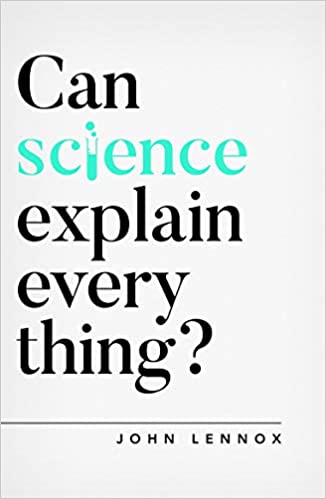A Brief Book Summary from Books at a Glance
by Steve West
About the Author
John Lennox is an emeritus professor in mathematics at Oxford University, and an eminent Christian thinker and apologist.
Table of Contents
Introduction: Cosmic chemistry
- Can you be a scientist and believe in God?
- How did we get here: from Newton to Hawking
- Mythbusters I: Religion depends on faith but science doesn’t
- Mythbusters II: Science depends on reason but Christianity doesn’t
- Can we really take the Bible seriously in a scientifically literate world?
- Miracles: a step too far?
- Can you trust what you read?
- How to disprove Christianity
- The personal dimension
- Entering the laboratory: Testing the truth of Christianity
Summary
Chapter 1: Can You Be a Scientist and Believe in God?
It is common to hear that you cannot be a scientist and believe in God, and this objection seems to keep people from a serious investigation of the issues of both science and God’s existence. There are some scientists who exacerbate the situation by positioning science and religion as enemies. As a student, Lennox was once told by a renowned scientist that he must give up his belief in God or suffer in his career as a scientist. Atheists in academia can pressure Christians to give up their faith, but Christians would be fired for trying to do the reverse. In academia, there are some scientists with preconceived ideas who will not examine the evidence for God. In the 20th Century, 60% of Nobel Laureates were Christians. People with different worldviews can all be excellent scientists; faith does not cripple one’s intellect or scientific ability.
There is simply no genuine conflict between believing in God and being a scientist—where the conflict lies is between the worldviews of atheism and theism. Naturalism is a worldview, and atheists put their faith in it. Historically, many of the greatest scientists were firm believers in God. More than this, they engaged in scientific inquiry because they thought that God had created the world to be discoverable and to run according to law. Despite the skewed narrative that makes Galileo and science the persecuted victims of bigoted religion, Galileo himself believed in God. The astronomers of the Jesuits were his first supporters: secular philosophers who followed Aristotle led the charge against him. In the end, Galileo was opposed by the Catholic Church, but this was after he repeatedly and unnecessarily antagonized influential people. Galileo believed in a theistic worldview and advanced our scientific understanding of the cosmos. Scientific knowledge and orthodoxy are not determined by whether or not one has faith. . . .
[To continue reading this summary, please see below....]The remainder of this article is premium content. Become a member to continue reading.
Already have an account? Sign In
